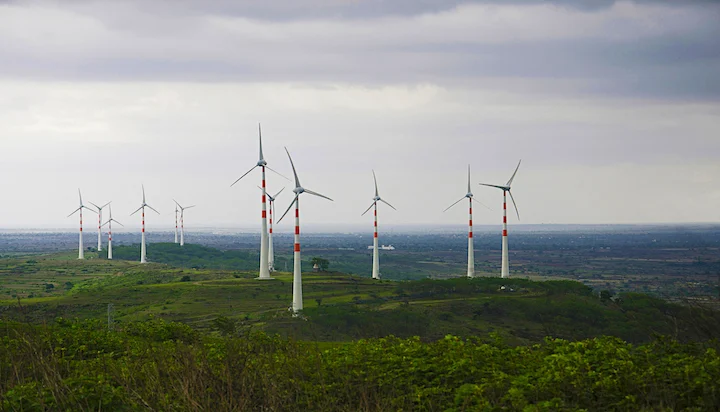Prime Minister Narendra Modi and UK Prime Minister Boris Johnson have launched a ‘green grids’ initiative—the One Sun One World One Grid (OSOWOG) project—on the sidelines of the COP26 summit. The project aims to connect energy grids across borders to facilitate a faster transition to the use of renewable energy.
What is the One Sun One World One Grid project?
India had first proposed connecting solar energy supply across borders at the International Solar Alliance in 2018 to allow parts of the world with excess renewable power to send power to other countries.
“If the world has to move to a clean and green future, these interconnected transnational grids are going to be critical solutions,” Modi said in Glasgow on Tuesday.
The proposal is aimed at addressing the issue of reliability of supply from solar power plants, which do not generate electricity after the sun has set. A transnational grid would allow countries to source solar power from regions where it is daytime to meet their green energy needs even when their own installed solar capacity is not generating energy.
OSOWOG is also aimed at addressing the issue of high cost of energy storage. Power and renewable energy minister RK Singh has underscored the point that the high cost of energy storage is a key challenge to boosting the use of renewable energy and that the OSOWOG initiative is a possible solution for driving down the need for storage, which in effect will reduce the costs of the energy transition.
What are the challenges to the OSOWOG project?
The transmission of power across vast distances would require large capital investment to set up long transmission lines. Experts have pointed out that transmission across great distances can potentially be very expensive. They have, however, noted that the first step of OSWOG would be solar power transfer between neighbouring countries.
India, Bhutan, Bangladesh, Myanmar and Nepal already share transmission capacity for energy transfer across borders which can be expanded further and utilised for the transfer of solar power between these countries.
The International Solar Alliance has commissioned a study the feasibility of the OSOWOG project. The study will make an assessment on a country-by-country basis, examining projected power demand and supply as well as the renewable energy resource potential.
Source: indianexpress.com









